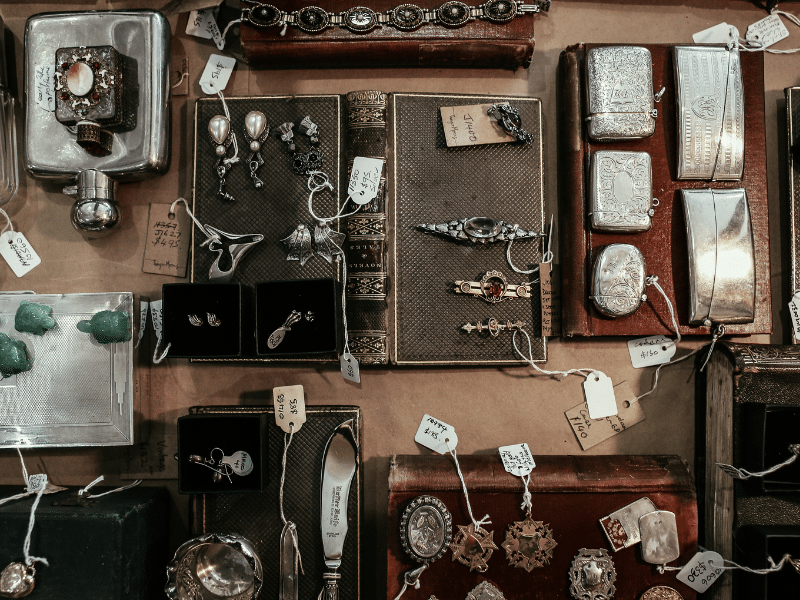Auctions have been around for much of modern history, ranging from antique auctions to selling off properties and estates. One of the most common figures we see in pop culture is the auctioneer, a fast-talking person generally running the proceedings and exciting potential bidders. However, a lot is going on behind the scenes regarding these professionals. What exactly are the full duties of an auctioneer? Let’s take a closer look.
What Is An Auctioneer?
Whether independent professionals or associated with a given auction house, auctioneers have a wide set of duties. Whether we’re talking jewelry, art, or real estate, this is a given across any industry. The top role of the auctioneer at the moment is to be fully aware of what’s taking place and keep track of things, as a heated auction can get hectic quite quickly in the bidding stage. Generally, they work alongside other experts and the seller to try and put together a sensible starting price, then will work to raise things from there. Also, the auctioneer’s final hammer slam serves as the confirmation of a sale. This makes it legally binding, meaning that the auctioneer must avoid potential mistakes at all costs.
Auctioneer’s Responsibilities
So far, this is probably keeping with what most people expect from auctioneers. However, there’s a lot more than that. Auctioneers generally also play a role in valuing and surveying different pieces for their value. In essence, this is helping with appraisals. For example, if this were a property auction, the auctioneer would be on the road, checking properties and areas and working with professionals to provide an appraisal. The chances are that if you’re at an auction, you may get a promotional brochure or booklet with details about some of the items at auction. There’s a good chance the auctioneer and their team gathered this information.
The auctioneer’s responsibilities also extend to promotion and marketing. After all, if you don’t get a good turnout, not only will there not be enough people to potentially buy all the items at auction, you may not be able to get as much as you had hoped for the items that do sell. This is generally accomplished over the telephone and with the help of estate agents. Your auctioneer will ensure that there aren’t just buyers present, but the right type of buyers, with the tastes and pockets to get the best prices.
There is a logistical element to the auctioneer’s role, such as keeping proper track of all sales and transactions during an auction. With potentially extremely valuable pieces changing hands and potentially even a legal process being involved, notes and paperwork the auctioneer takes could be essential. Sometimes, they enlist professional note-takers to provide the auctioneer transcripts after the auction.
Online Auctioneers
Why the role of the auctioneer has evolved so much is because auctions themselves have changed a lot. In the Internet age, many auctioneers need to learn new skills and appraise different items. Making this even more different is that vendors now have the means to seek out auctioneers with specialized skills and gauge their performance. Looking at an auctioneer can show whether they have the knowledge or cadence you are looking for.
Traits of A Good Auctioneer
Some people may think about hiring an auctioneer or even dabbling in the profession themselves. If this is the case, here are a few traits you want to focus on when it comes to being a good auctioneer.
Good Communication
First, and perhaps the most important, is developing good communication skills. At this point, auctioneers have evolved to become a key link in the rapport between buyers and sellers and need to be able to meet these two sets of needs. This means serving as an effective third party, connecting with an auction crowd, and even focusing on the body language of individual buyers.
For example, auctioneers need to read a crowd quickly to determine whether they should try and push for a higher bid or let the crowd relax during an auction period. These same auctioneers will also need to prep for negotiations and be ready to talk with different buyers. Top auctioneers can call hundreds of auctions a year, making them a desired resource in many markets and industries.
It’s essential to be able to communicate that insight properly. As we mentioned, there’s much more to auctioneers than simply talking fast. However, that doesn’t mean that an element of showmanship isn’t needed. Auctioneers, in a sense, are also entertainers, creating a show of sorts for potential buyers and setting an overall tone for an auction.
Ideally, a good auctioneer has the charisma to create an air of excitement around the proceedings and get the crowd’s attention.
Keep It Light and Fun
Humor and specific lines are often key tools to try and get bids going. Hand-in-hand with being a good communicator and charismatic is being confident. An auctioneer that talks too quickly, mumbles through bids, or looks nervous likely won’t inspire the bidding action they are hoping for. This can come across as a tough balancing act to strike at first. For example, confidence is one thing, but you don’t want to give the impression of being an overly forceful auctioneer.
Many buyers are already wary at an auction, and if an auctioneer is being too forceful, it may keep them from bidding. Ideally, you want to encourage people to maximize the sale price without intimidating them. This takes time, but it’s ultimately time well spent.





